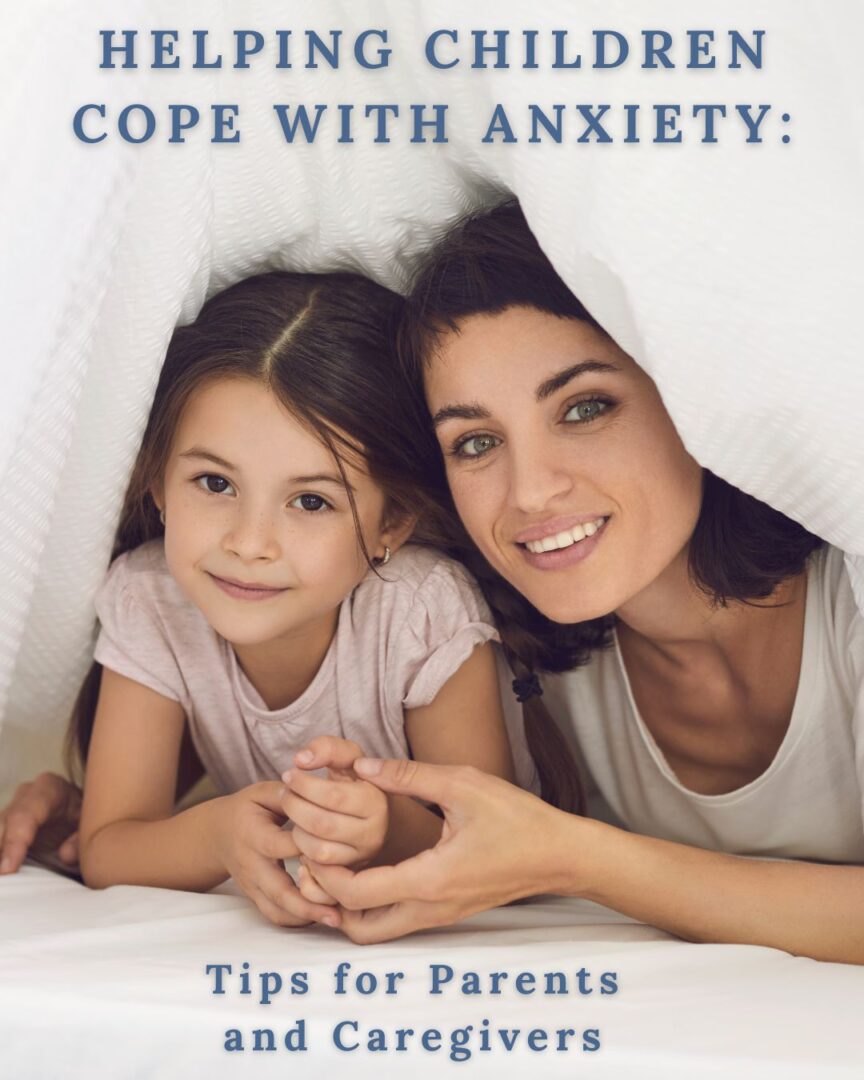Is your child experiencing excessive worry, trouble sleeping, or avoiding activities they used to enjoy? These could be signs of childhood anxiety. Anxiety is becoming more common, and it can significantly impact a child’s emotional well-being and daily life. As a licensed therapist specializing in children’s mental health, I help parents and caregivers understand how to support their child through anxiety and when to seek professional help.
Recognizing Childhood Anxiety
Children can experience anxiety in different ways, depending on their age:
- Younger children (preschool-age): May cling to parents, have frequent tantrums, complain of stomachaches or headaches, or experience nightmares.
- Older children (school-age and teenagers): May worry excessively about schoolwork, social situations, or future events. They might have difficulty sleeping, become withdrawn, or avoid activities they used to enjoy.
Understanding the signs of anxiety is the first step in providing the right support.
Parenting Tips for Helping Children Manage Anxiety
- Encourage Open Communication: Create a safe space for your child to express their fears and concerns. Use simple, age-appropriate language to validate their feelings without dismissing them. For example, you could say, “I understand that you’re worried about the test tomorrow. It’s okay to feel nervous.”
- Teach Coping Strategies: Introduce calming techniques like deep breathing. Encourage your child to breathe in slowly through their nose for a count of four, hold for a count of two, and then exhale slowly through their mouth for a count of six. You can also teach them progressive muscle relaxation or mindfulness exercises. These tools can help children manage anxiety in the moment.
- Establish a Routine: Children thrive on structure. A predictable routine, especially around sleep and mealtimes, can provide a sense of security and reduce anxiety.
- Limit Exposure to Stressful Situations: Avoid overwhelming your child with stressful events or media coverage that may heighten their anxiety. Focus on creating calm, reassuring environments.
- Model Healthy Coping: Children learn by example. Demonstrating how to cope with stress in healthy ways – such as taking deep breaths or going for a walk during difficult situations – teaches children to do the same.
- Help Your Child Challenge Negative Thoughts: Anxiety often stems from negative thoughts. Help your child identify these thoughts and challenge them with more realistic and positive thinking.
When to Seek Professional Help
While these strategies can be effective, there are times when professional support is necessary. Signs that therapy may be helpful include:
- Anxiety significantly impacting daily life (e.g., school, social activities, family life)
- Symptoms persisting despite efforts at home
- Difficulty managing emotions or behavior
- The child expresses feelings of hopelessness or avoidance
Therapy, such as cognitive-behavioral therapy (CBT) or play therapy, can be incredibly effective in helping children manage anxiety. These approaches allow children to understand their emotions, develop coping strategies, and build confidence in managing anxiety independently.
Investing in Your Child’s Mental Health
As a licensed therapist specializing in children’s anxiety, I offer therapy for children and families, with both in-person and telehealth options available. Early intervention can make a lasting difference, helping children build resilience and emotional well-being.
If your child is struggling with anxiety, don’t wait. Contact me today, to discuss how therapy can help, at 484-401-7621 or by email, info@helpfulcornercounseling.net

